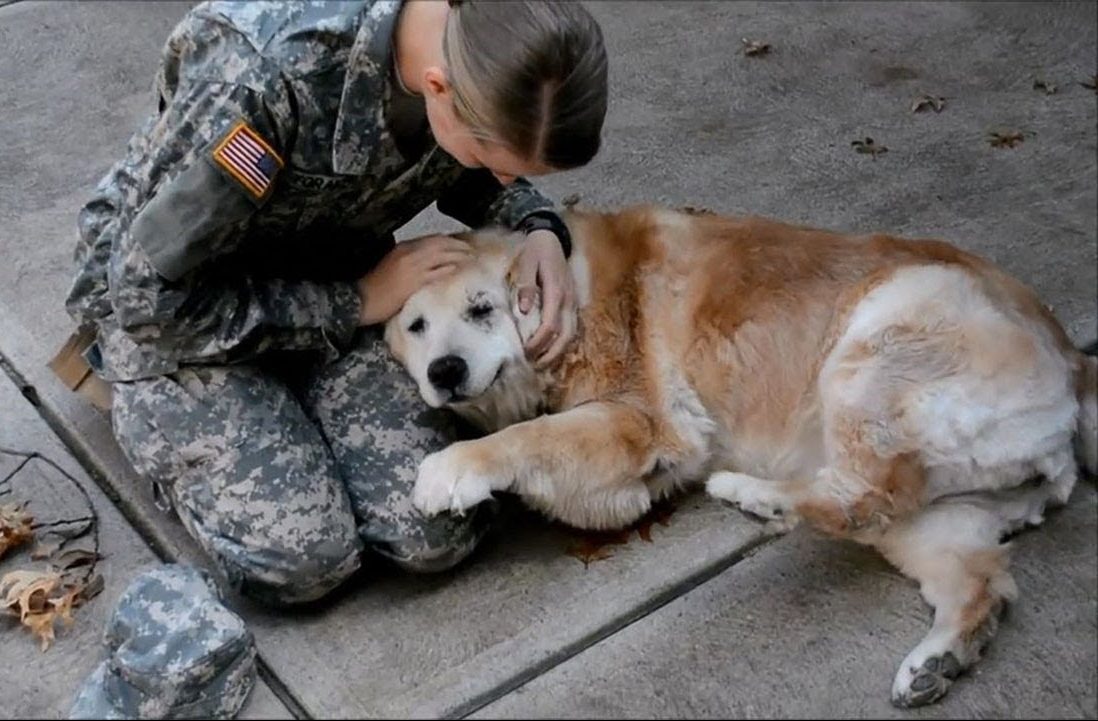Dogs
Has Your Dog’s Personality Changed? Here’s What to Look For

Have you ever looked at your dog and thought, Gosh, he seems so different lately? It might be because of changes in his personality as he ages—or it could be that he’s always been this way but you never noticed before. Personality changes in older dogs can have several causes and you should look into them to help your pet live the best life possible as he continues to age. Read on to learn what signs you should look for to determine if an elderly dog’s personality has changed and how best to treat him with these changes in mind.
Dogs can change as they age
As dogs age, their personality can change, and sometimes it can be hard to tell if there is something wrong. However, there are some things that you may notice in your dog that might indicate that he or she is not feeling well.
First, look at your dog’s general behavior. If he or she has been sleeping more than usual, this could be a sign of illness. If the dog spends less time outside and more time inside than normal or seems overly tired when they play with other dogs, these are also signs of illness. It is also important to take into account how much weight your dog has lost over a short period of time. Dogs can easily lose 10% of their body weight due to illness without any noticeable changes in appetite. If your dog seems to have lost more than 10% of his or her body weight, this could be another sign of an underlying medical issue.
Some diseases will cause the stool to become either diarrhea or constipation (or both) so it is important that you pay attention to what type of stool your dog produces and whether his or her stools have changed over time.
secondly, As dogs age, they can become more needy for attention and may not be as independent or self-sufficient. They might get jealous when you play with a younger dog. They might also start showing anxiety when you leave the house or have strangers come over. This could be a sign that they’re feeling less confident and secure in their world. You can help them feel better by making sure they have plenty of enrichment while you’re gone and by giving them extra attention when you return home.
A change in routine can trigger a change in personality
Changes in routine can trigger a change in personality, especially when dogs are stressed or confused. The following are some changes that can indicate your dog is experiencing stress or confusion:
– Increasing the amount of time they spend hiding.
– Excessive barking.
– Decreasing the amount of time they spend playing or interacting with you.
If you notice any of these signs, it could be time to make an appointment with your vet and discuss how best to move forward.
A change in diet can also affect a dog’s personality
It is important to know the personality of your dog before making any changes. By understanding their natural tendencies, you can identify changes in their behavior and pinpoint what might be causing them. One of the most common reasons for a change in personality is an alteration in diet. If you notice that your dog has stopped eating or has been experiencing diarrhea or constipation, then these are all signs that something might not be right with their food. Some dogs have very specific tastes so you may need to experiment with different brands and types of food until you find one they enjoy.
If you notice a change in your dog’s personality, take them to the vet
If you notice a change in your dog’s behavior, it could be due to a change in their diet, an illness, or an injury. If this is not the case, it may be due to a problem with the dog’s mental health. This can often manifest through changes in their personality and temperament. Some signs that your dog may have developed an issue with their mental health are they are:
Becoming aggressive towards you or other people, Reacting more strongly than usual on walks or when encountering other dogs, Losing interest in food and playing, Sleeping for long periods of time, Frequently whining, barking, or howling, Exhibiting odd behaviors such as trying to hide all the time.
These changes in your dog’s demeanor should be monitored closely. They might need medical treatment or some behavior modification training so that they can get back to normal.
0 Comments
Leave a Reply
Cancel reply
Dogs
Everything You Need to Know About Neutering for Pets

Lo
Neutering for pets is a common procedure that is important for the long-term health and well-being of your furry friend. Neutering involves surgically removing either the testes or the ovaries and uterus of an animal, usually a dog or cat. There are many benefits to neutering your pet, such as reducing their risk of cancer, controlling their behavior, and preventing unwanted litters. It is recommended that pet neutering be done at a young age, but it can be performed at any time. In this blog post, we will provide all the information you need to know about neutering for pets, including when it should be done and the potential risks involved.
Dogs
What to Do With Your Dog’s Body After Death: A Guide for Pet Owners

My dog died, and I’m not sure what to do with their body. It’s a heartbreaking moment for any pet owner, and the uncertainty of what to do can make it even more difficult. In this blog post, I’ll provide a comprehensive guide for pet owners on what to do with their dog’s body after death. We’ll cover everything from burial and cremation to taxidermy and memorializing your beloved pet. No matter what you decide to do, I hope this article will help you in this tough time and provide you with the resources you need to properly honor your pet’s life.
Dogs
Keep your distance: signs that you should keep away from your furry friend

When your pet displays certain symptoms, it is important to stay away to protect yourself and your pet. If you observe any of the following pet symptoms, it’s best to keep your distance until the issue has been addressed: lethargy, vomiting, diarrhea, excessive scratching or licking, shaking or trembling, sudden changes in appetite, coughing, sneezing, or discharge from the eyes or nose. Taking steps to stay away from your pet during these times will help to ensure the safety of both you and your furry friend.
Coughing and sneezing
Coughing and sneezing are common symptoms that our pets may experience from time to time. Just like us, they can catch colds or suffer from allergies, leading to these respiratory issues. While coughing and sneezing can be relatively harmless, it’s still important to take precautions to protect both you and your furry friend.
When your pet starts coughing or sneezing, keeping your distance is best. This is especially true if they have any other symptoms such as discharge from their nose or eyes, difficulty breathing, or lethargy. Coughing and sneezing can be signs of more serious underlying conditions such as respiratory infections or allergies. In some cases, they may even be contagious to humans, so it’s crucial to avoid close contact until you can consult a veterinarian.
Remember to provide a comfortable and clean environment for your pet to help alleviate their symptoms. Keep an eye out for any changes in their condition, and if their coughing or sneezing worsens or persists, make sure to seek professional help. Taking these precautions will help ensure the well-being of your pet and minimize any potential risks to yourself.
Trending

 Cats12 months ago
Cats12 months agoDon’t Feed Your Cat These 8 Foods!

 Cats8 months ago
Cats8 months agoWhy Do Cats Spray and How Can You Stop Them? Insights into Urine Spraying in Male Cats

 Dogs2 years ago
Dogs2 years agoSo You’re Thinking About Getting a Poodle

 Birds1 year ago
Birds1 year agoThe Perfect Blend for Your Birds: Birds and Blend

 Horses1 year ago
Horses1 year agoDon’t Go Horse Shopping Without Checking This Dressage Horse Shopping Checklist First!

 Cats7 months ago
Cats7 months agoPre-Vaccination Prep: Getting Your Cat Ready

 Cats7 months ago
Cats7 months agoThe Ins and Outs of Cat Sterilization: Removing the Female’s Ovaries

 Cats6 months ago
Cats6 months agoWhy Kittens are Born Dead or Deformed


















Pingback: The Power of Socialization in Calming Dog Aggression